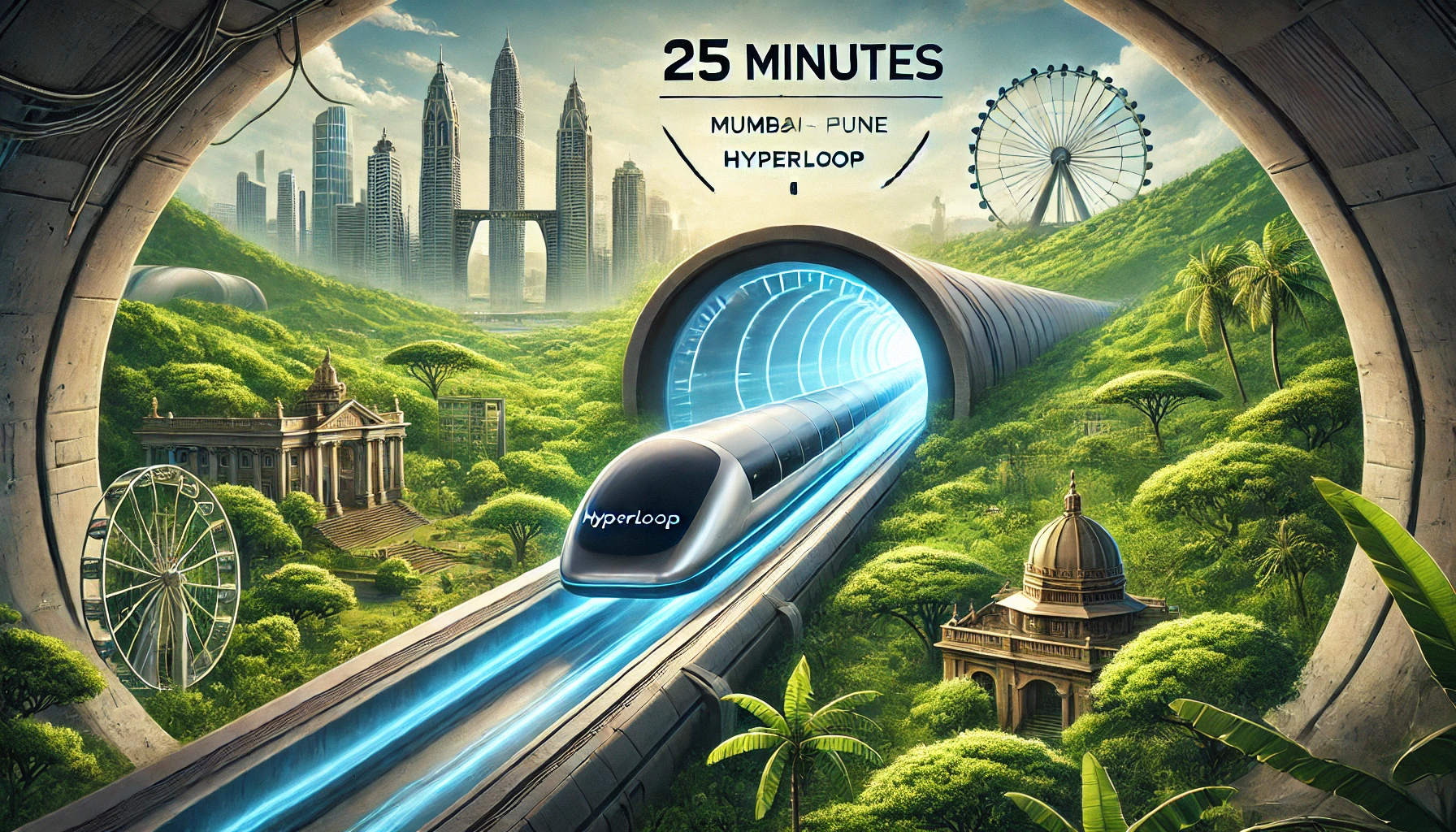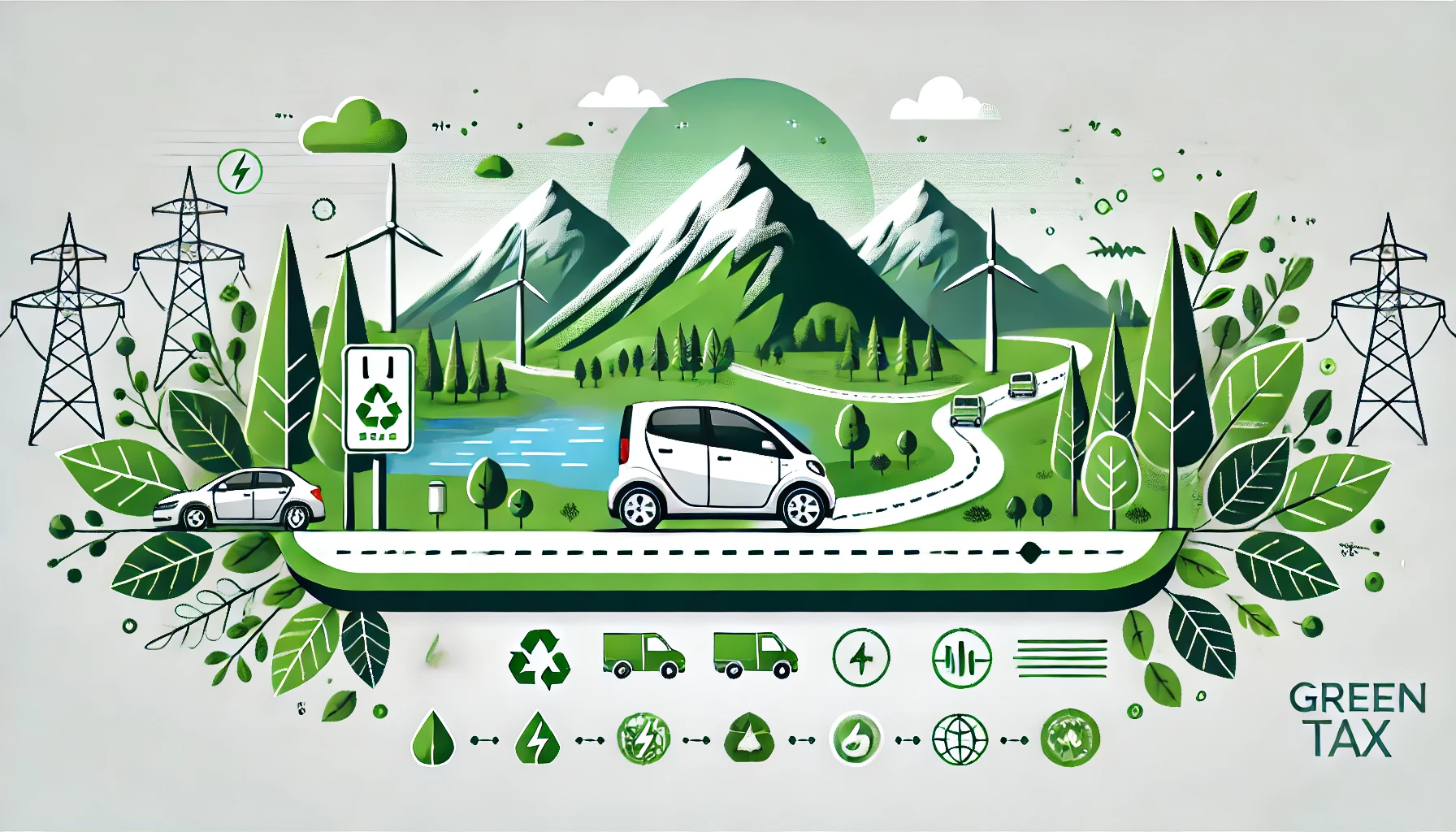Imagine traveling between Mumbai and Pune, two bustling metropolitan cities of Maharashtra, in just 25 minutes. What once seemed like a futuristic dream is now inching closer to reality, thanks to the groundbreaking Hyperloop technology. With innovative advancements spearheaded by IIT Madras and supported by the Indian government, the Hyperloop promises to redefine intercity travel in India. Let’s dive into everything you need to know about this revolutionary project.
What Is the Hyperloop?
The Hyperloop is a high-speed transportation system where passenger pods travel through vacuum-sealed tubes at ultra-high speeds. By eliminating air resistance and friction, the Hyperloop offers faster, energy-efficient, and environmentally friendly travel. Developed by global visionaries, this technology has the potential to reduce travel times drastically and revolutionize connectivity between cities.
Hyperloop Technology in India: The Mumbai-Pune Route
The Concept
The proposed Hyperloop corridor between Mumbai and Pune aims to connect these two cities in a record time of 25 minutes. Currently, traveling between Mumbai and Pune via car or train takes around 3 to 4 hours. The Hyperloop will cut this time significantly, bringing unprecedented convenience to commuters.
Key Highlights of the Project
- Speed: The Hyperloop is designed to reach speeds exceeding 1,000 km/h, making it faster than commercial flights.
- Efficiency: Reduced travel time will enhance productivity and connectivity between Mumbai and Pune.
- Sustainability: Hyperloop technology is energy-efficient and eco-friendly, utilizing magnetic levitation and renewable energy sources.
The Role of IIT Madras in Hyperloop Innovation
India’s first steps toward realizing the Hyperloop are being led by IIT Madras in collaboration with TuTr Hyperloop, a cutting-edge startup incubated at the institution.
Achievements
- Test Track: IIT Madras has successfully built a 410-meter test track to simulate and test the feasibility of Hyperloop technology.
- Collaborative Research: The team at IIT Madras, known as Avishkar Hyperloop, has partnered with global experts to refine and adapt the technology for India’s unique landscape.
Government Support
The Indian government, under the Ministry of Railways, has expressed strong support for the Hyperloop project. This collaboration underscores the country’s commitment to pioneering next-generation transportation systems.
Benefits of the Mumbai-Pune Hyperloop
1. Drastic Reduction in Travel Time
The Hyperloop will transform what is currently a 3-4 hour journey into a 25-minute commute. This will significantly improve the efficiency of intercity travel for business and leisure.
2. Boost to Regional Connectivity
Enhanced connectivity between Mumbai and Pune will foster economic growth, reduce urban congestion, and create opportunities for both cities to thrive as twin economic hubs.
3. Environmentally Friendly Solution
By leveraging renewable energy sources and minimizing emissions, the Hyperloop is an eco-friendly alternative to traditional transport methods like cars and airplanes.
4. Improved Quality of Life
The reduced commute time will enable individuals to spend more time at home, with families, or pursuing leisure activities, thereby improving their overall quality of life.
Challenges and Future Prospects
While the Hyperloop holds immense promise, certain challenges remain on the path to its implementation.
Key Challenges
- High Initial Costs: The infrastructure required for Hyperloop systems demands significant investment.
- Regulatory Approvals: The project will need to navigate various regulatory hurdles, including land acquisition and safety standards.
- Technological Adaptation: Adapting Hyperloop technology to India’s geographical and climatic conditions requires intensive research and development.
Future Prospects
Despite these challenges, the progress made so far is highly encouraging. With continued support from the government and advancements in technology, the Hyperloop could become a reality within the next decade, setting a global benchmark for innovation in transportation.
How Hyperloop Will Impact Travel in India
The Mumbai-Pune Hyperloop is just the beginning. Once successful, this technology can be replicated across other major corridors in India, such as:
- Delhi to Jaipur
- Bengaluru to Chennai
- Hyderabad to Vijayawada
The Hyperloop will redefine long-distance travel, making it faster, safer, and more efficient.
A New Era in Transportation
The Hyperloop project between Mumbai and Pune represents a transformative step toward the future of travel in India. With its promise of speed, efficiency, and sustainability, this revolutionary mode of transportation has the potential to reshape how we commute, work, and live. As the project progresses, it brings India closer to leading the world in next-generation transportation technology.
Stay tuned for updates on the Hyperloop and get ready to experience the journey of the future!











